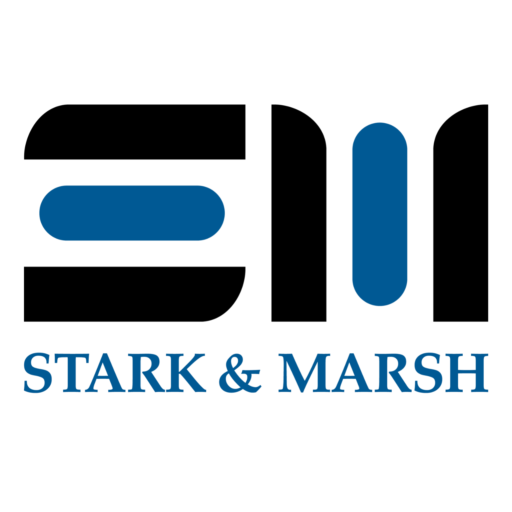BUSINESS RESOURCE
Self Employment Insurance
WHAT IS SELF EMPLOYMENT INSURANCE?
Typically self-employed individuals do not qualify for employment insurance (EI) unless they apply for self-employed EI which allows qualifying individuals to access EI special benefits. Benefits are paid at 55% of average weekly earnings up to a maximum amount (55% of earnings up to $51,700 for 2018), indexed annually.
WHAT TYPES OF EI SPECIAL BENEFITS ARE THERE?
By applying for self-employment EI, individuals can receive different types of EI special benefits. There are six types of EI special benefits:
- Maternity benefits – covers the period surrounding the birth of a child for up to 15 weeks.
- Parental benefits – covers the period after the maternity benefits have expired for up to 35 weeks. It also covers newly adopted children for up to the 35 weeks. This can be taken by either parent or can be split between both parents. Extended parental benefits are available as of December 3, 2017 and can extend the parental leave for up to an additional 6 months by pro-rating the benefits over this extended period.
- Sickness benefit – covers up to 15 weeks for people who are injured, sick or are required to be quarantined.
- Compassionate care benefits – covers up to 26 weeks to temporarily provide care or support for a family member who is seriously ill with significant risk of death.
- Family Caregiver benefits for critically ill children – covers up to 35 weeks to care for a critically ill or injured child who is under 18.
- Family Caregiver benefits for critically ill adult – covers up to 15 weeks to care for a critically ill or injured adult family member.
WHO CAN REGISTER FOR SELF-EMPLOYED EI?
Registration is completed online through a My Service Canada account. Application for benefits can occur 12 months after registration. There are 3 requirements to be eligible to register:
- You operate your own business, or you work for a corporation but cannot access EI benefits because you control more than 40% of the corporation’s voting shares.
- You are either a Canadian citizen or a permanent resident of Canada.
- You meet the minimum threshold of self-employment earnings. For 2018 the prescribed minimum self-employment earnings will be $6,947.
HOW MUCH DOES IT COST?
Premiums are calculated annually when you file your personal income tax return. Payment will be included in the balance owing/refunded on the same personal income tax return. In 2018, for every $100 earned, $1.66 will be contributed as a premium up to a maximum amount. In 2018, this maximum amount is $858.22. The premiums paid will be a non-refundable income tax credit of 15% federally and 11% provincially for those in Saskatchewan. The provincial rate will vary by province. Essentially, at the maximum amount in Saskatchewan for 2018 the cost will be $635.08 net of tax.
If I opt-in and change my mind, can I opt-out?
This depends on if you have ever received self-employed EI benefits. If you have never received EI benefits, you can opt-out at any time. If you have received EI benefits, you cannot opt-out and must pay EI premiums on self-employment income for the duration of your self-employment career.
WHO SHOULD CONSIDER REGISTERING FOR SELF-EMPLOYED EI?
On the surface, self-employed EI does not appear appealing. Many people will not access EI benefits in their lifetime and the premiums are required to be paid each year if they do happen to access the benefits. Many private insurance plans cover short-term disability and accessing EI benefits is not required. There are, however, situations where it could be beneficial. Some situation are, but not limited to, the following:
- Parents of maternal or adopted children. If you have plans to have maternal or adopted children in the future, it could be beneficial. Self-employed individuals cannot otherwise access maternity and parental benefits. A full 50 weeks of maternity/parental benefits at the maximum amount covers approximately 30 years of premiums paid at the maximum amount. If you have multiple children and can access the benefits multiple times, the benefits will more than cover the lifetime of premiums paid.
- An individual is self-employed currently, but may not be in the future. In this situation the premiums will still be required each year while self-employed, but with self-employment earnings ceasing to exist once the individual has stopped being self-employed, the premiums will be nil.
- An individual working in an industry with a higher-than-normal risk of being injured. Although there are other insurance options available for short-term disability, self-employed EI is another affordable option.
- An individual with sick or at-risk family members. Self-employed EI can be beneficial if there is a good chance you’ll have to care for a family member, either child or adult, in the future. By opting-in, you can access weekly benefits to cover time away to help pay bills and help cover any cash flow shortages.
Self-employed EI is a program that will not be beneficial for everybody, but can be beneficial for some. For more information visit the Government of Canada website www.canada.ca or talk to one of our tax professionals or trusted advisors.

Conrad Funk
PARTNER
Conrad earned a Bachelor of Science degree in Business Administration with a concentration in Finance from Winthrop University (South Carolina, USA) in 2004. He began working for Peters and Loeppky, Chartered Accountants in May of 2005 and moved over to Stark and Marsh in 2008 when the two firms merged.
In 2009, he decided to pursue his CPA, CA designation, through the legacy CA program, which required a few course upgrades followed by completion of the CASB (Chartered Accountant School of Business) program which he successfully completed in 2014. In September of 2014, he wrote and passed the UFE (Uniform Final Exam) which is the last step to becoming a CPA, CA, and in January 2019 attained his Certified Valuation Analyst (CVA) certification. In January 2022, Conrad became an Associate Partner with Stark & Marsh.
Conrad’s experience is mainly in corporate year ends, corporate tax, personal tax, and farm programs. He is also working in the valuation department.
Questions?
Contact Conrad today to discuss your personal circumstances.
